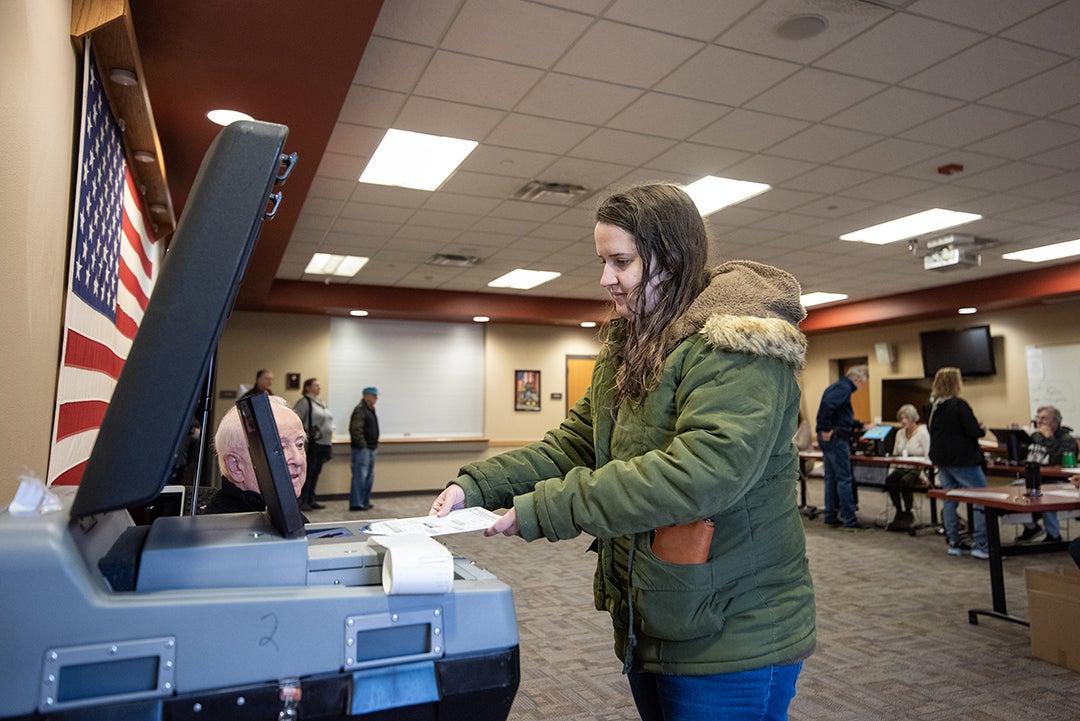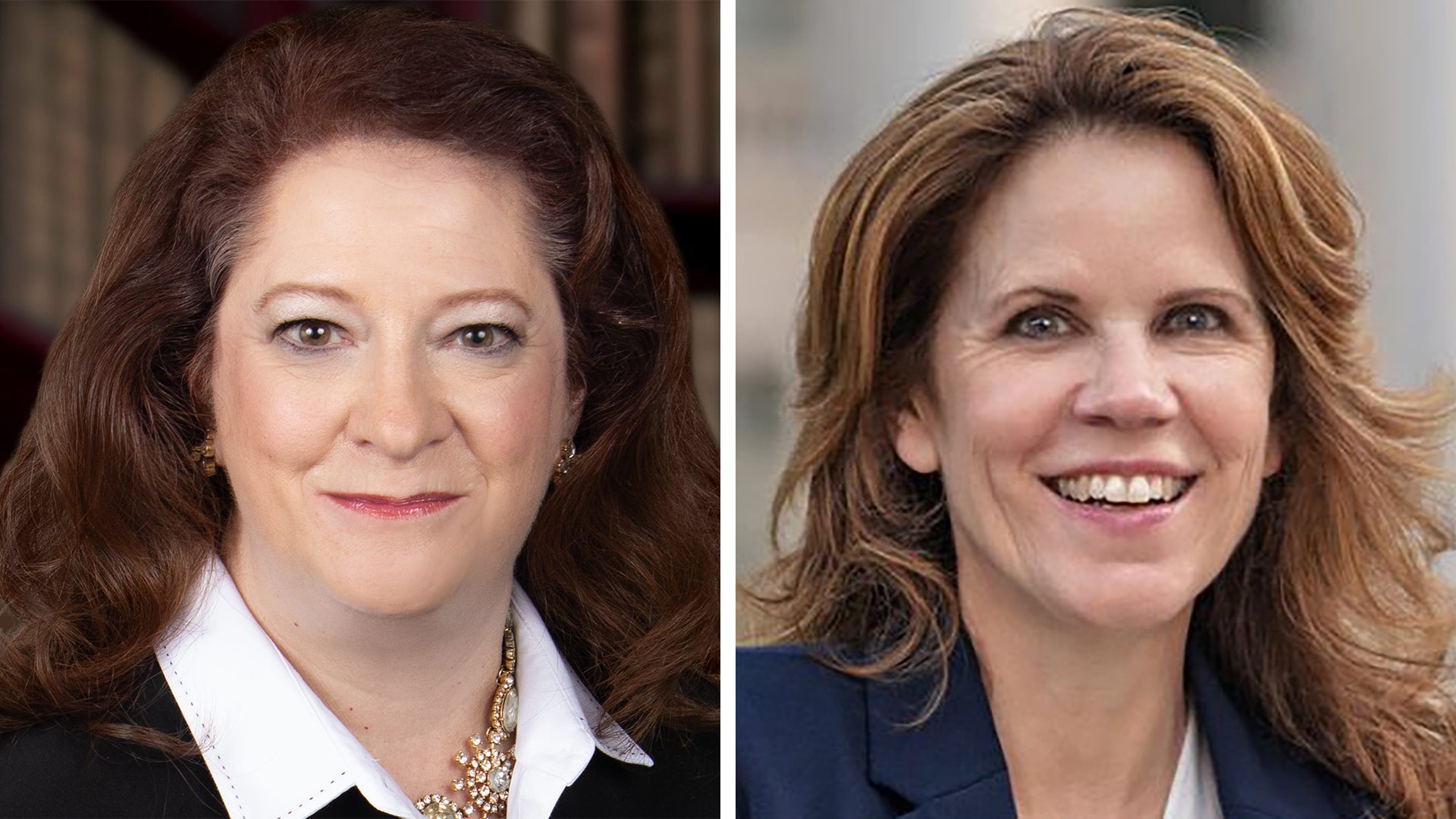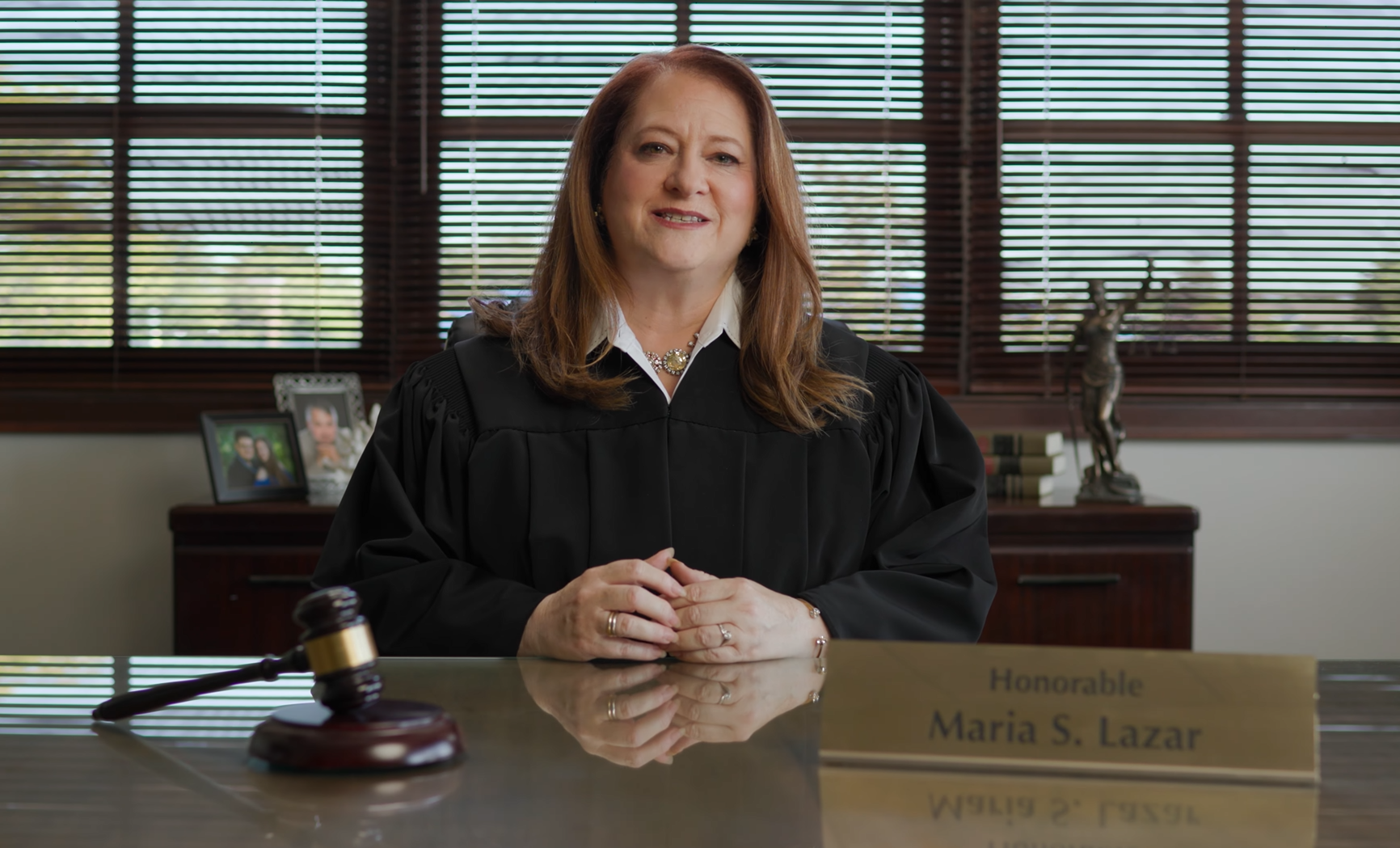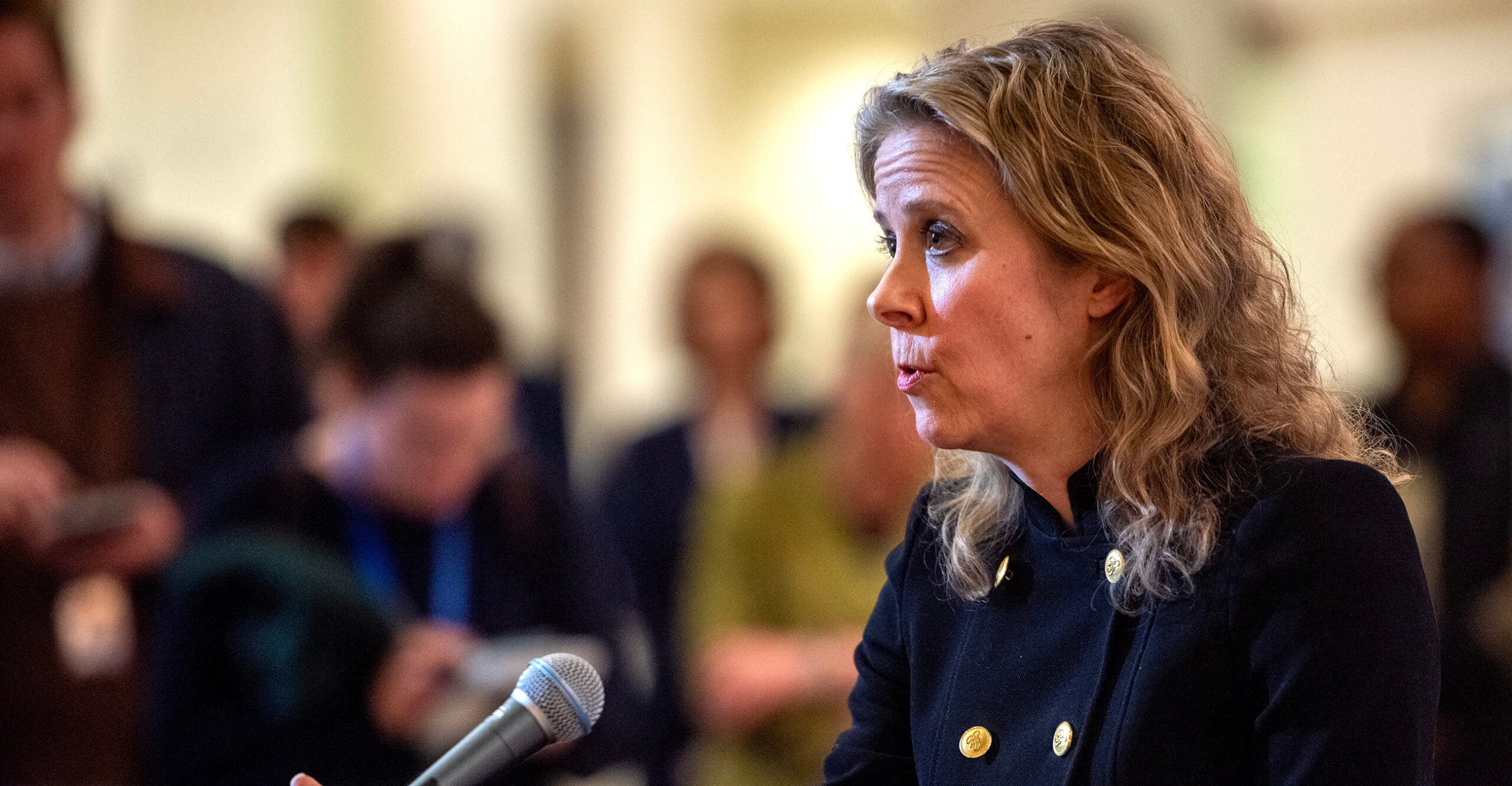Although voter turnout is typically low for state Supreme Court races, the stakes in Tuesday’s primary election are sky-high.
While the race is officially nonpartisan, Tuesday’s contest will narrow down the number of candidates before an April 4 general election that could shift the balance of power on the state’s highest court.
That balance could affect the outcome of decisions on hot-button issues, including abortion rights, voting procedures and the maps determining political districts.
News with a little more humanity
WPR’s “Wisconsin Today” newsletter keeps you connected to the state you love without feeling overwhelmed. No paywall. No agenda. No corporate filter.
Justice Patience Roggensack, a part of the court’s narrow conservative majority, is retiring, and now conservatives Jennifer Dorow and Daniel Kelly, along with liberals Everett Mitchell and Janet Protasiewicz are running for a 10-year term to take her place.
In the last decade, turnout as a percentage of eligible voters hasn’t exceeded the teens for Wisconsin’s Supreme Court primaries.
The last time a Supreme Court seat was on the ballot was in 2020, and more than 705,000 Wisconsinites cast their ballots in the primary race. That represented more than 15 percent of the voting-age population — the highest percentage for any state Supreme Court primary since at least 2000, said pollster Charles Franklin, who used Wisconsin Elections Commission data in his analysis.
Primary day in Wisconsin. Here is turnout in contested Supreme Court primaries since 2000. Fill in the blank for today. (As percent of voting age population.) pic.twitter.com/YLQQifcOLc
— Charles Franklin (@PollsAndVotes) February 21, 2023
During that race, Kelly and liberal Jill Karofsky were the top vote-getters, although Karofsky defeated Kelly in the April general and is now a justice. Franklin, who directs the Marquette Law School poll, said he believes voter interest in the state Supreme Court race has risen over the last several decades in part because of rising partisanship.
“There’s more at stake, people see the differences between the liberal and conservative candidates as more consequential than they did 20 years ago, and we’re throwing a lot more money into the races, so there’s more campaign mobilization,” Franklin said. “The court is closely divided.”
Even so, the 2020 primary may have been less fraught than this Tuesday’s election. Three years ago, Karofsky was unopposed as a liberal contender while in the 2023 primary there are two conservatives and two liberals running.
“On the conservative side, we’ve seen real divisions within Republican and conservative groups — the candidates have criticized each other to various degrees,” Franklin said. “So I think that the fact that both sides have a contest that all four candidates are on the ballot, that’s enough to drive up turnout probably just by itself.”
Even though voter turnout is usually low for state Supreme Court races compared to other races like midterms or presidential elections, Anthony Chergosky, who teaches political science at the University of Wisconsin-LaCrosse, said this year’s judicial matchup could be exceptional in many ways.
“This is going to be a very unusual judicial election in terms of spending, in terms of the intensity of the campaign, in terms of the national attention it attracts and, ultimately, in terms of the voter interest that we see in April,” he said.
Campaign spending records are likely to be shattered if one liberal and one conservative advance to the general election where abortion rights will take center stage, Chergosky predicted. Wisconsin’s GOP-led Legislature has been refusing calls from Democratic Gov. Tony Evers to repeal an 1849 law that bans abortions unless they’re done to save a pregnant person’s life. Meanwhile, Evers is backing an ongoing lawsuit that seeks to block enforcement of the law — a case that could advance to the state’s Supreme Court.
“When the governor and the Legislature simply cannot agree on things, it really moves the ball into the judiciary’s court, and it means that the judiciary has the opportunity to make an impact,” Chergosky said.
Polling place in Village of Brooklyn moved after disturbance
A polling place in the Village of Brooklyn, south of Madison, was moved Tuesday morning following a disturbance initially deemed a “public safety threat.”
A tweet at 8:26 a.m. from Dane County Clerk Scott McDonell said the village was moving a polling place from its Community Building at 102 North Rutland Ave. to the Village Public Works Building at 102 Windy Lane, “due to an ongoing public safety threat that is preventing access to the polling location.”
The village’s polling place was moved around 9:30 a.m., per an update from McDonell.
“Dane County Sheriff Kalvin Barrett has informed me that the incident has been resolved and a man has been arrested for a disturbance,” McDonnall said.
McDonnell told Wisconsin Public Radio the disturbance wasn’t related to the election.
Because voting was interrupted by the incident, he said the village requested a court order to extend voting hours for those unable to vote during the move.
In an update sent just after 6 p.m., McDonell said a Dane County judge had ordered the public works polling place to remain open an additional hour and a half to make up for the loss of time earlier in the day.
Wisconsin polls open until 8 p.m.
As of early Tuesday morning, 204,434 absentee ballots had been returned, according to numbers updated by the Wisconsin Elections Commission. Absentee ballots must be received by mail or be dropped off at a local clerk’s office, by 8 p.m. on Election Day in order to count.
Polls are open until 8 p.m. on Election Day, and people in line by that time get to vote. Wisconsin also offers same-day voter registration at the polls or a local clerk’s office until 8 p.m. on Election Day.
Local races, including mayoral and school board primaries are also on the ballot throughout Wisconsin Tuesday. And in southeast Wisconsin, three Republicans — Janel Brandtjen, Dan Knodl and Van Mobleare — are competing in a primary to replace retiring Republican state Sen. Alberta Darling in District 8. The winner will face Democrat Jodi Habush Sinykin in the spring.
Wisconsin Public Radio, © Copyright 2026, Board of Regents of the University of Wisconsin System and Wisconsin Educational Communications Board.





